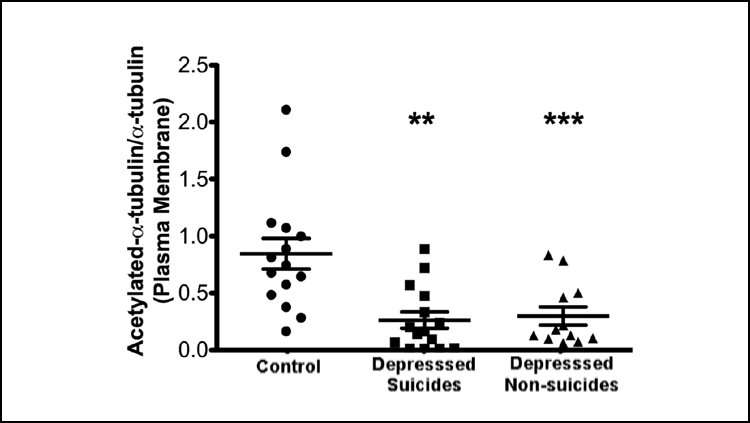Structural protein may be new marker of depression

Scientists have zeroed in on a structural protein as a new target for the diagnosis and treatment of depression, according to research recently published in JNeurosci.
The protein tubulin provides structure to cells and assists in many cellular processes, but it also plays a role in depression. A modified form of tubulin anchors the protein Gαs to lipid rafts, fatty structures floating in the cell membrane. In depressed people, Gαs gets stuck in lipid rafts and cannot trigger the production of cAMP, a molecule necessary for quick messaging in the brain. Imaging studies have shown that people with depression have less cAMP in their brains, which is remedied after successful treatment.
Singh et al. examined the amount of modified tubulin in the brains from people who were not depressed as well as those from people with depression who died by suicide and by other causes. All the brains contained the same amount of modified tubulin, but the brains of people with depression had less modified tubulin in the lipid rafts. This could allow more tubulin to trap Gαs in the lipid rafts, preventing cAMP production. Tubulin could provide a diagnostic marker of depression and a target of antidepressant treatment.
More information: Membrane-Associated α-Tubulin Is Less Acetylated in Postmortem Prefrontal Cortex From Depressed Subjects Relative to Controls: Cytoskeletal Dynamics, HDAC6 and Depression, JNeurosci (2020). DOI: 10.1523/JNEUROSCI.3033-19.2020




















